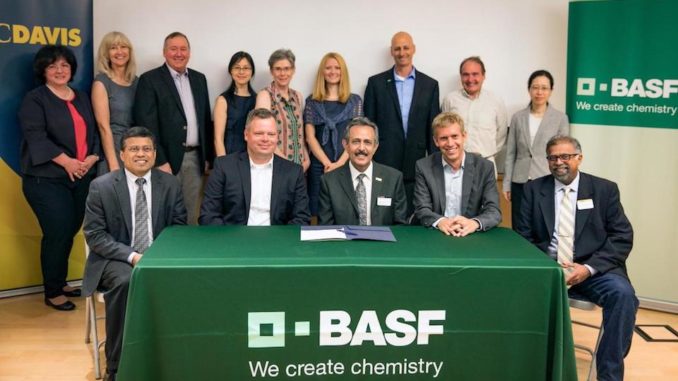
BASF and the University of California, Davis (UC Davis) announced a collaboration to unlock new benefits of human milk oligosaccharides (HMOs). The long-term objective of this strategic research partnership is to develop and validate second-generation HMO molecules as potent bioactive compounds that can influence the establishment and maintenance of the gut microbiome and provide benefits beyond the gastrointestinal tract, such as brain health, for infants, children and adults.
Human milk contains a multitude of HMOs, a class of indigestible carbohydrates that is gaining recognition for a variety of health-promoting activities. Substantial evidence demonstrates that the high diversity of structures and concentration of HMOs in human milk contribute to improved health outcomes associated with breastfeeding.
BASF recently announced the launch of 2′-fucosyllactose (2′-FL) for infant nutrition and is now taking next steps to expand its scientific and application know-how in the area of HMOs.
“This collaboration is an essential cornerstone of our strategic initiative to become a leading science-based player in the fields of HMO and microbiome,” said Stefan Rüdenauer, Director of Development and Scientific Marketing Human Nutrition, BASF.
The two-year partnership with UC Davis’ research team is part of BASF’s California Research Alliance (CARA), which brings together experts from major universities on the West Coast to collaborate on new materials and their applications, biosciences and related technologies. Professors Daniela Barile, David Mills, Helen Raybould, Xi Chen, and Bruce German from the Foods for Health Institute at UC Davis will use their collective expertise to reveal new applications for HMOs. BASF’s contributions to the partnership include its proficiency in fermentation products and the development of human nutrition solutions, as well as project funding.
“We are excited to partner with BASF to unlock novel HMO functionalities,” said Professor Barile. “This project will employ a range of microbiological and physiological studies employing cutting-edge glycomics and metagenomics tools to explore how HMOs interact with the human host and the microbes within them.”
Source: BASF

